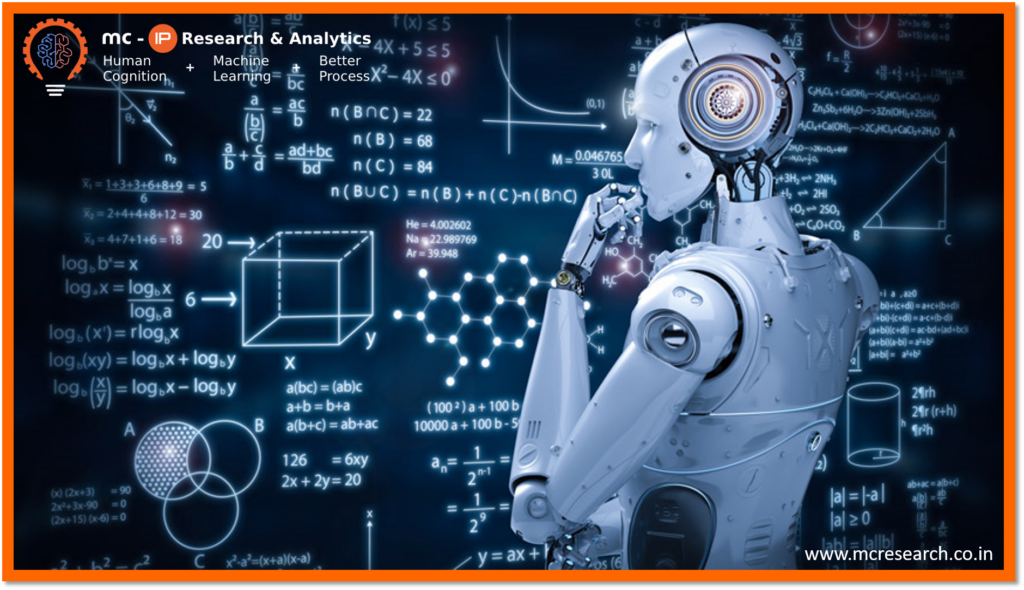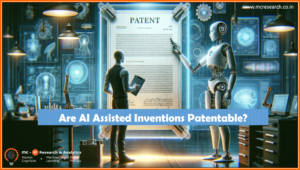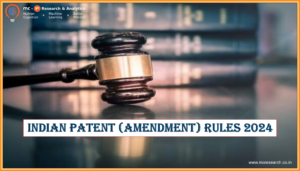Background of Patent application with AI as an inventor - Natural person, AI, and Inventorship
DABUS refers to an artificial intelligence (AI) system that had gained a lot of attention in notable intellectual property case. In 2019, a team of researchers led by Dr. Stephen Thaler developed an AI called DABUS (Device for the Autonomous Bootstrapping of Unified Sentience). The purpose of DABUS was to generate novel ideas and inventions.
The controversy arose when Dr. Thaler filed PCT applications in various countries, listing DABUS as the inventor. The patent offices, including the United States Patent and Trademark Office (USPTO) and the European Patent Office (EPO), rejected the applications because their regulations require human (Natural person) inventors. They argued that DABUS, being an AI system, could not be recognized as the legal inventor. However, DABUS was recognized as an inventor by South African Patent Office to note that South African patent law does not define for the inventor. Also, United Kingdom initially rejected DABUS application
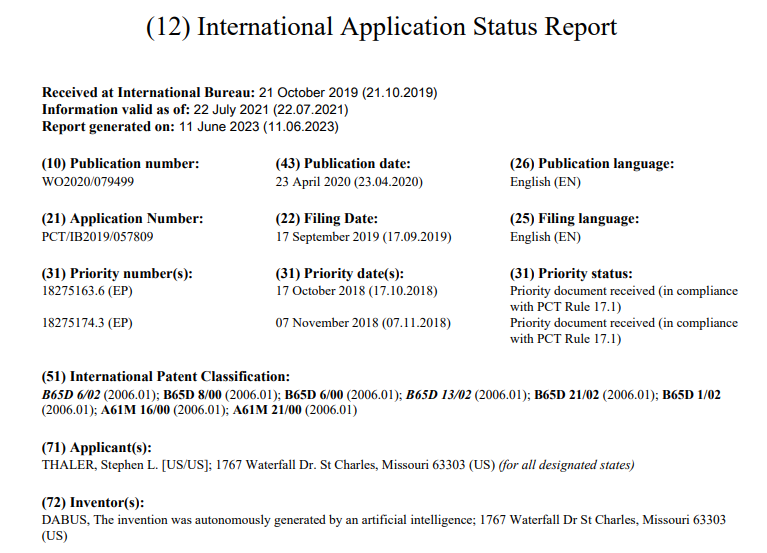
Statements from Australia, Europe, the United States, India and their judgment on the DABUS patent application
Australia
DABUS application was first denied by the Australian Patent Office (APO), but Stephen Thaler successfully appealed to the Federal Court. On July 30, the court announced its ruling, concluding that an AI system or device was not ineligible to be recognized as an inventor under the terms of the Patent Act of 1990.
After reviewing the relevant clauses, Justice Beach concluded that an AI system or device might qualify as an inventor under the Act. The court did rule, however, that a non-human inventor was not eligible to apply for or get a patent. This choice was seen to be in line with modern technology, the Patent Act, and the encouragement of innovation. It served as the country’s first court decision enabling the AI computer to be included as an inventor in a patent application.
This judgment emerged from various legal perspectives included or not included in the patent act such as-
- Lack of Explicit Exclusion in the Patents Act
The Patents Act does not disclose any provisions explicitly refusing the possibility of AI systems functioning as inventors. The Act does not impose a requirement for a human inventor, and no specific provision precludes the recognition of an AI system as an inventor. - Ownership and Derivation of Title
The Patents Act requires a legal person as an applicant but it does not impose the same requirement for an inventor. Dr. Thaler, the applicant in this case, satisfies the conditions as a legal representative of the AI system known as DABUS. - Expanding the Scope of Title Derivation
Section 15(1)(c) of the Patents Act recognizes that the title to an invention can be derived from an inventor through means other than formal assignment. Dr. Thaler’s possession of DABUS, ownership of its source code’s copyright, and ownership and possession of the computer housing the AI system indicate a valid derivation of title.
The country’s intellectual property office, IP Australia, declared on August 30, 2021, that it will appeal the judgment following this finding. The appeal was eventually considered by the Federal Court on April 13, 2022, and the court decided in IP Australia’s favor. All the judges decided that designating an AI system as the inventor did not follow the rules because patent eligibility must originate in human endeavor.
On April 13, 2022, the Full Court of the Federal Court revoked the previous decision, stating that according to the Patents Act 1990 and the Patents Regulations 1991, only a natural person can be recognized as an inventor. The court emphasized that the identification of an inventor is necessary for anyone to be entitled to a patent grant. Consequently, the ruling invalidated the recognition of AI systems as inventors. On November 11, 2022, Thaler’s request for special leave to appeal to the High Court was rejected, thereby concluding his legal efforts regarding the patent application.
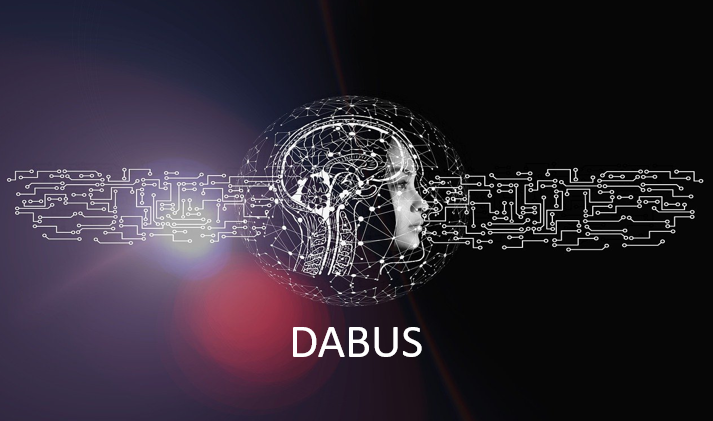
United States – AI Inventor DABUS
The United States Patent and Trademark Office (USPTO) refused the patent applications for the inventions, asserting that only natural persons can be named as inventors in a patent application. This decision was based on the interpretation of the existing legal policy governing inventorship.
Thaler took legal action to challenge this outcome by filing a complaint under the Administrative Procedure Act (APA). Thaler argued that the decision lacked substantial evidence and exceeded the statutory authority of the USPTO.
Furthermore, Thaler filed a petition with the USPTO on August 19, 2019, in accordance with 37 C.F.R. § 1.181. The petition argued that DABUS should be recognized as the inventor. Both Thaler and the judge, in this case, agreed that Thaler himself could not receive the patent on behalf of DABUS.
The USPTO’s refusal to grant patents for AI-generated inventions is based on the prevailing interpretation that only natural persons can be considered inventors within the US patent system.
Europe - AI Inventor DABUS
Stephen Thaler filed two European patent applications with the European Patent Office (EPO) in October and November 2018. The applications were for inventions related to a “Food Container” and “Devices and Methods for Attracting Enhanced Attention.”
However, on January 27, 2020, the EPO rejected the applications on the basis that the inventor listed in the application was an AI system called DABUS, rather than a human being. This decision was based on Article 81 and Rule 19(1) of the European Patent Convention, which require the inventor to be a person with legal capacity.
Thaler appealed the decision to the Board of Appeal of the EPO, but on December 21, 2021, the appeal was dismissed. The Board of Appeal upheld the EPO’s primary decision, stating that the term “inventor” in the European Patent Convention refers to a natural person with legal capacity.
India – AI Inventor DABUS
Dr. Kalyan C. Kankanala raised a pre-grant opposition against Thaler’s patent application in India. Dr. Kankanala argued that patent applications cannot be filed for inventions created by AI applications or machines like DABUS. He contended that AI does not possess the legal capacity to be recognized as inventors under Indian patent law. According to Dr. Kalyan’s opposition – the primary objective of the Indian patent system is to promote human ingenuity and inventive activity. Granting patents to non-human creations is inconsistent with this objective. Consequently, DABUS cannot be considered a legal inventor.
Dr. Kalyan’s opposition challenges the inclusion of AI as inventors within the current legal framework of Indian patent law. This issue raises the need for further clarification and potential legislative adjustments to address the unique considerations and complexities associated with AI-generated inventions.
According to Section 2 and Section 6 on Indian Patent Act 1970 have defined inventor or applicant as a person to file a patent in Indian jurisdiction.
What do we understand from the DABUS case?
It is clear that there is still discussion to be done about IP rights and AI, beyond this case. DABUS case might have resolved the issue via legislation but the consultation concluded that no change in the law was needed at that point of time, and even now.

